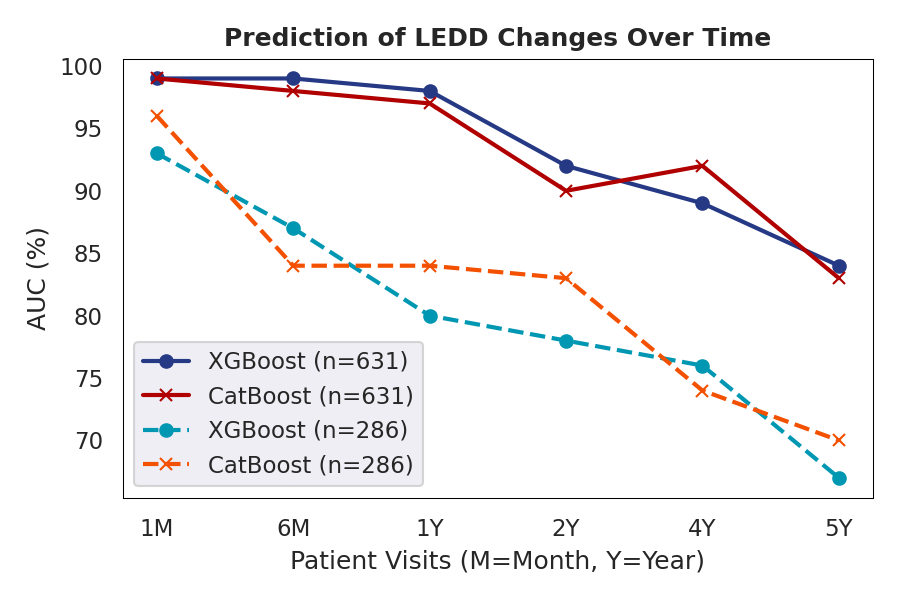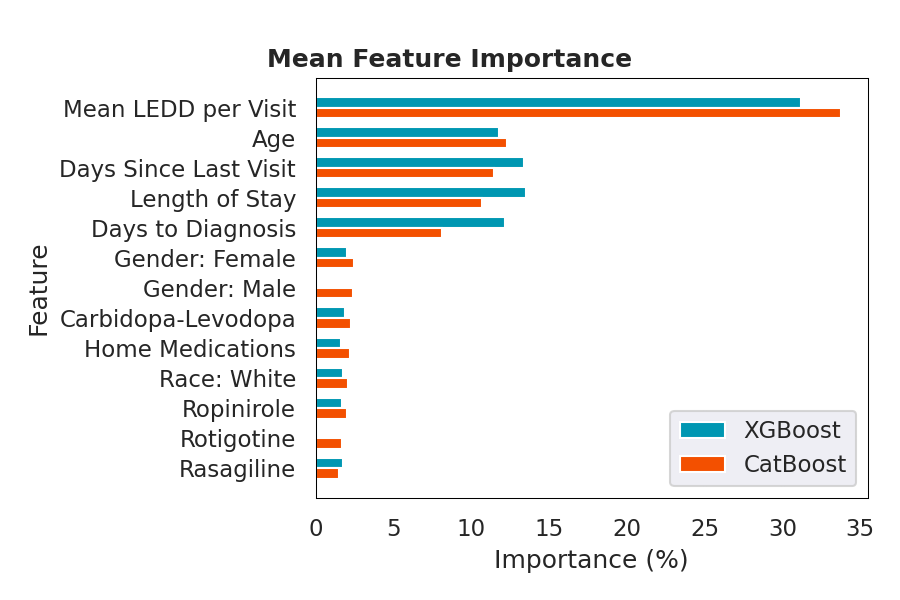Objective: To assess medication usage over time in Parkinson’s Disease utilizing AI in EHR data.
Background: Parkinson’s disease (PD) is a complex neurodegenerative disorder characterized by the presence of motor symptoms and commonly associated non-motor concerns. While significant research has focused primarily on assessing PD based on motor disability, there is limited experience harnessing valuable sources of information contained in electronic health records (EHR) data that can be an informative surrogate of clinical onset and disease progression, like clinical notes, demographics, and pharmacologic therapies.
Method: We leverage artificial intelligence (AI) techniques applied to clinical notes, demographics, and EHR data to predict PD. Specifically, we aim to stratify use of medication over time utilizing the Levodopa Equivalent Daily Dose (LEDD), whose clinical significance provides a measure of the clinical efficacy of second-line therapies and their impact on medication regimens. By assisting in decision-making, addressing medication regimens, and accurately predicting changes in the LEDD and severity of PD promptly (as well as enabling doctors to modify treatment plans) an accurate prediction of the LEDD can provide insight into medication regime and efficacy over time.
Results: We develop and validate gradient boosting algorithms (XGBoost and CatBoost) to forecast LEDD changes. We leverage explainability techniques to indicate salient features for medication changes, suggesting adherence to recommended medication regimens to improve motor symptoms. For patient visits within 1 and 6 months alongside 1, 2, 4, and 5 years, XGBoost achieved an Area Under the Curve (AUC) of 99%, 99%, 98%, 92%, 89% and 84% respectively. Similarly, CatBoost showed an AUC of 99%, 98%, 97%, 90%, 92% and 83% for the corresponding periods.
Conclusion: Our results suggest that assessing LEDD variability is notably more precise over shorter time intervals. Notably, our findings align with existing literature by 1) facilitating trust for Carbidopa-Levodopa as the primary therapeutic choice for PD 2) suggesting Dopamine Agonists (Ropinirole and Rotigotine) as a second-line therapy for PD and 3) underscoring the role of age in PD progression, as it emerged as the second-most influential predictor in our models. In comparative analysis, XGBoost demonstrates superior performance, achieving a higher AUC requiring less iterations than CatBoost.
Prediction of LEDD Changes Over Time
Mean Feature Importance
To cite this abstract in AMA style:
R. Diaz-Rincon, H. Khoshbouei, B. Shickel. AI for Personalized Medication Management in Parkinson’s Disease [abstract]. Mov Disord. 2024; 39 (suppl 1). https://www.mdsabstracts.org/abstract/ai-for-personalized-medication-management-in-parkinsons-disease/. Accessed March 4, 2026.« Back to 2024 International Congress
MDS Abstracts - https://www.mdsabstracts.org/abstract/ai-for-personalized-medication-management-in-parkinsons-disease/


